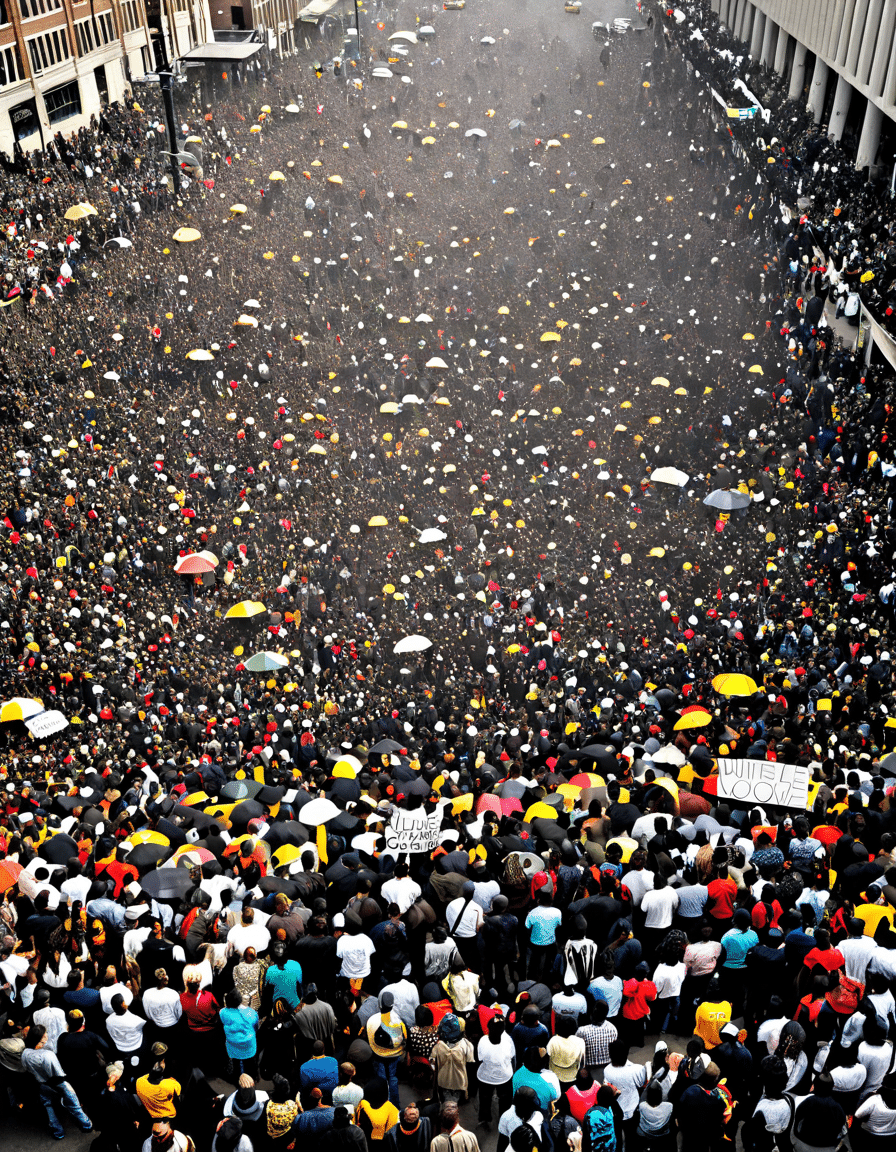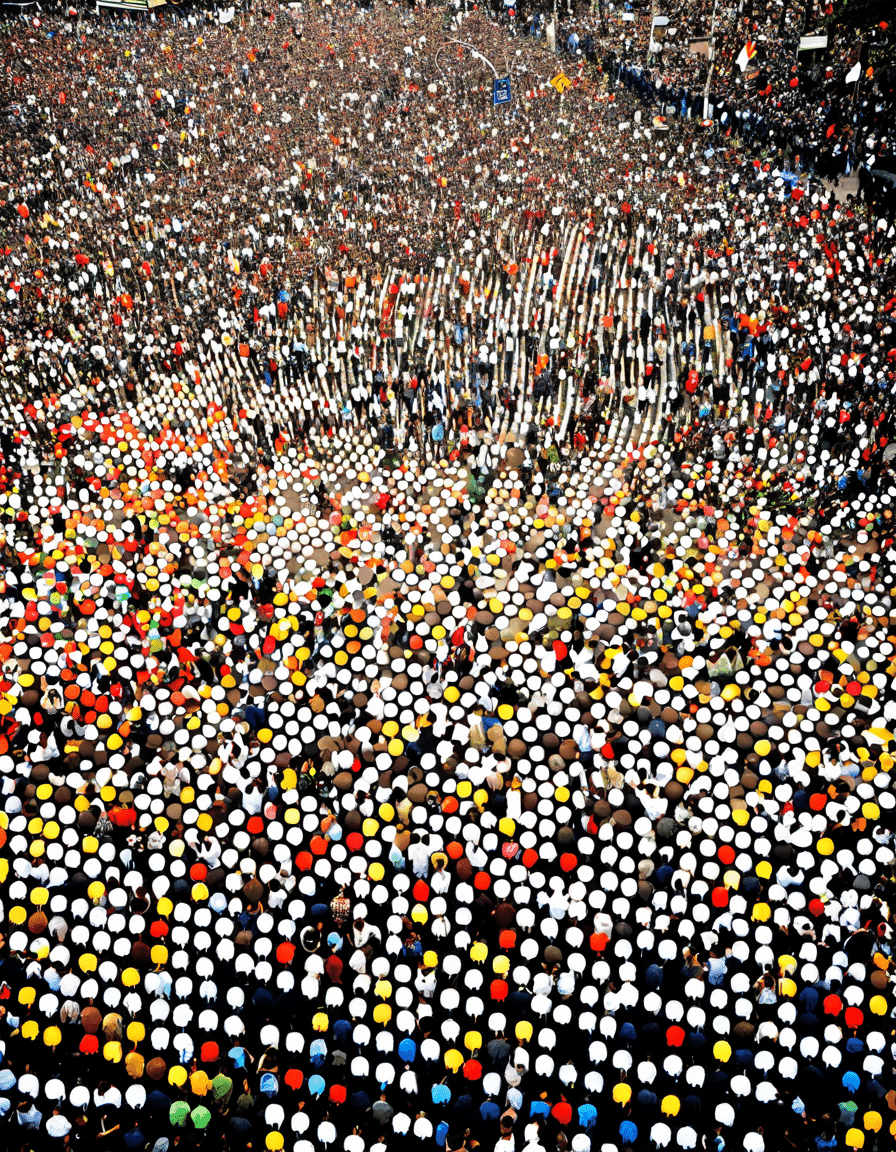In today’s fast-paced world, understanding the underlying dynamics of major global events is more crucial than ever. These events, from pandemics to climate crises, stem from deeper issues that often intertwine and resurface over time. By examining previous occurrences, we uncover patterns that can help solve contemporary challenges. The COVID-19 pandemic, geopolitical tensions, and economic downturns serve as stark reminders of how historical events set the stage for today’s world.

1. Forerunners of Contemporary Crises: A Deep Dive into Historical Parallels
From history’s pages, we see how past events inform modern crises. Take the COVID-19 pandemic: a stark reminder of our vulnerability to novel viruses. When we peek back at the SARS and MERS outbreaks, we see early warnings about viral threats that we failed to heed, indicating a pattern of neglect in public health preparedness.
Climate events pose another pressing issue. With increasing occurrences of natural disasters, we witness how long-term patterns lead to food insecurity. The recent droughts in California reflect the dire food crises felt in South Sudan, emphasizing how agricultural resiliency is deteriorating.
Then, there are economic crises that reveal underlying issues within financial systems. The 2008 financial crash was fueled by reckless lending and insufficient regulatory oversight, predicated upon persistent issues in the housing market. These unresolved problems still linger today, shaping economic policies and leading nations to approach future decisions with skepticism.

2. Stimulating Factors Behind Today’s Global Tensions
Identifying what stimulates conflict and unrest is vital for understanding today’s global landscape. In regions facing resource scarcity, such as the ongoing disputes over the Nile River, climate change and rising populations create intense pressure on water resources. These struggles spotlight the intersection of environmental change and geopolitics, revealing how water access can trigger diplomatic frictions.
Political radicalization also plays a significant role. Countries like the United States and Brazil showcase how misinformation through social media can provoke extreme movements. With rising polarization, governance becomes destabilized, leading to significant social division.
Another major player is economic inequality. The widening gap between the rich and poor, exacerbated by tax policies favoring the wealthy, leaves many feeling disenfranchised. Movements like the “Yellow Vests” in France reflect this discontent, demonstrating how economic decisions can unleash substantial social unrest.
3. Deteriorating Global Alliances: The Shifting Landscape of International Relations
The fabric of international relations is constantly changing, and the deterioration of alliances could spell trouble. The relationship between NATO and Russia has been particularly strained, with rising tensions stemming from the Ukraine crisis. Historical grievances often serve as the backdrop for escalating conflicts, showing how vital diplomacy is in maintaining peace.
China’s Belt and Road Initiative has also reshaped global alliances. This ambitious program aims to bolster infrastructure across Asia and beyond, providing opportunities for development yet raising concerns about financial dependency. Nations are left grappling with the uncertainty of their sovereignty versus potential economic growth.
As alliances wobble, the stakes rise. Countries increasingly find themselves caught between competing interests, prompting calls for renewed diplomatic efforts that could stabilize relationships.
4. Intervening Forces: The Role of Global Organizations and Policies
Global organizations play a pivotal role in responding to crises. The United Nations’ efforts during humanitarian crises highlight both successes and challenges. For instance, the organization attempted to manage the Syrian refugee crisis, revealing limitations in enforcing international policies while balancing national interests.
Similarly, the World Health Organization’s handling of the COVID-19 pandemic drew both praise and criticism. While WHO’s initiatives for equitable vaccine distribution were ambitious, the unequal vaccination rates across nations underscored the intervening forces’ capabilities to address global health challenges.
In examining these organizations, we see their significance in shaping responses to crises. Whether they succeed or falter often hinges on cooperation among member states, showing that unity is essential for effective intervention.
5. A Skeptical View of Progress: Achievements and Missteps in Addressing Global Challenges
Despite advancements in global initiatives, skepticism surrounding long-term progress is prevalent. Take the Paris Agreement: While it set ambitious climate goals, the absence of enforceable commitments raises critical questions about its effectiveness. With countries like Brazil rolling back environmental protections, the path to sustainability remains rocky.
In terms of global health, initiatives such as COVAX aimed to facilitate vaccine distribution but faced substantial hurdles. Disparities among nations led to doubts about the sincerity of global commitment to public health equity, casting shadows over future collaborative efforts.
As we push forward, acknowledging these missteps is vital. Without recognition of past failures, repeating mistakes becomes all too easy.
Innovations and Insights for the Future
Addressing the underlying causes of major global events demands innovative solutions. As we stand at a crossroads, developing proactive strategies for resource management, social equity, and international collaboration is essential. By learning from history and recognizing the nuances of contemporary crises, we can navigate challenges and work toward a more equitable future.
In our interconnected reality, addressing these core issues necessitates multifaceted strategies and a commitment to shared problem-solving. As we face today’s pressing concerns, transforming global events into opportunities for positive change can create a more resilient landscape for generations to come.
In the end, we must reflect on underlying issues like resource scarcity, economic inequality, and political radicalization, understanding they’re interconnected. Without a plan to address these core challenges, we risk igniting further crises—making vigilance and collaboration our best allies in ever-shifting global dynamics.
The Underlying Threads of Global Events Today
The Importance of Understanding Underlying Factors
Understanding the underlying causes of major global events can be as enlightening as it is challenging. For instance, societal shifts often spur movements that reinforce cultural identities. Did you know that in recent years, the popularity of unique fashion items—like Mz Wallace Bags—has reflected deeper socio-economic trends? This growing trend isn’t just a matter of aesthetics; it reveals the values and priorities of contemporary society, showing how fashion can sometimes serve to assert a global identity amidst change.
Moreover, political events can have layers that are not immediately visible on the surface. Take a look at the Purported misconceptions surrounding certain leaders’ approaches to governance. The way media figures, such as Martin Bashir, shape narratives can influence public perception, impacting political stability worldwide. It’s fascinating how underlying narratives, even if misleading, can lead to significant shifts in opinion and policy.
The Role of Global Culture in Current Events
Cultural phenomena also play a major role in shaping global sentiment. For example, during the announcement of Rush Hour 4, fans were excited, but it also raises questions about cultural representation in film. It turns out this excitement isn’t just about the movie; it’s an indication of nostalgia and the desire for connections to familiar stories. As we delve deeper, we realize these underlying emotions can affect how global audiences respond to media, and consequently, how they align themselves with various cultural movements.
Let’s not forget the impact of digital media where action Animes continue to captivate younger audiences. The influence of this genre has an underlying connection to the growing acceptance of diverse storytelling forms. As we tune in, we see how these shows attract listeners worldwide, bringing discussions on cultural relevance to the forefront. Isn’t it something to ponder how the interplay of media and culture can generate widespread movements?
The Economic Landscape and Its Underpinnings
Lastly, economic tensions often find their roots in underlying issues. For instance, the economic factors laden with uncertainty can dictate global markets and even clash between nations. When economic struggles arise, they can create an environment ripe for debate and action following the ensuing crises. The intricate interplay of these issues can lead to a cascade effect, further challenging our views on international trade and relations.
As we reflect on these underlying factors, it’s evident they don’t just exist in isolation. Each piece connects to create a bigger picture of how events unfold on the global stage. With all these threads interwoven, it’s clear that understanding the underlying elements of what’s happening today requires both insight and curiosity. So the next time you hear about a major event, consider the deeper connections that lie beneath—it might change the way you see the world!




